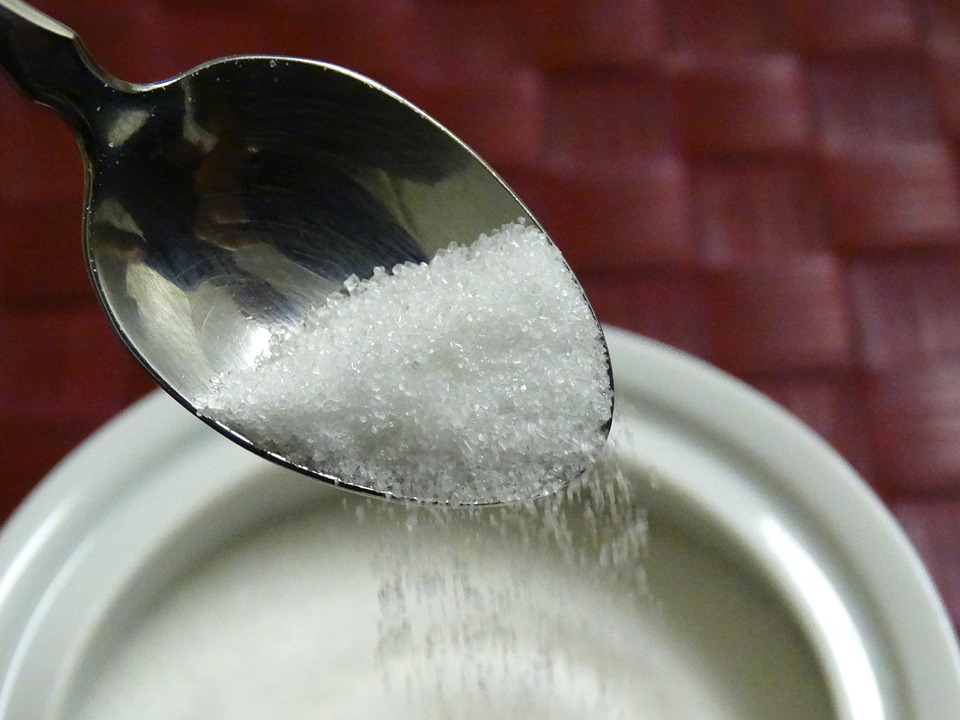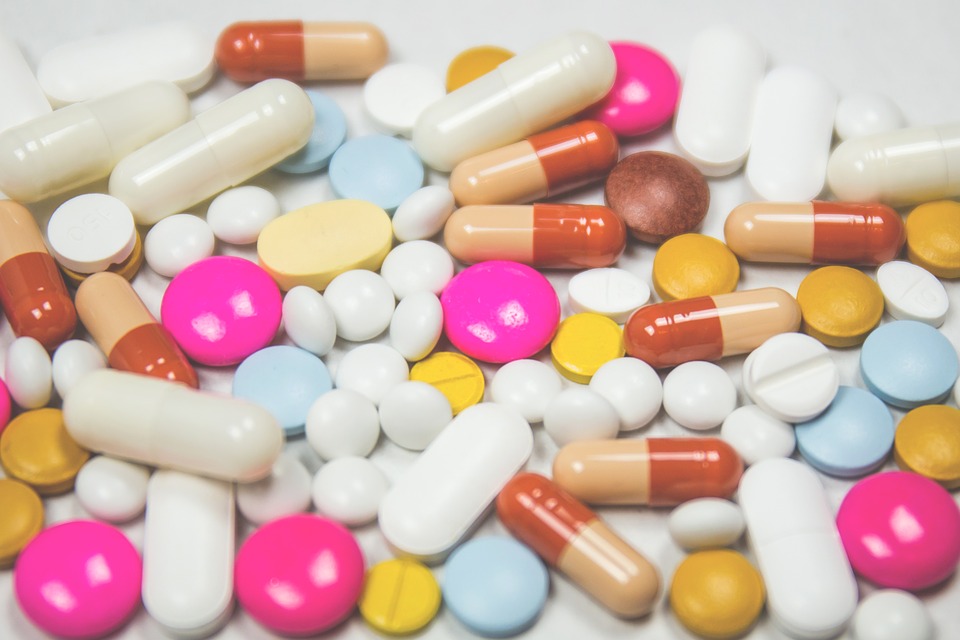
Having a fight with a spouse may not only hurt feelings, but also worsen symptoms of chronic conditions like arthritis or diabetes, a study has found. Researchers from Pennsylvania State University in the US found that in two groups of older individuals - one group with arthritis and one with diabetes - the patients who felt more tension with their spouse also reported worse symptoms on those days.
The findings - published in the journal Annals of Behavioral Medicine - could potentially help create interventions targeted at helping couples with chronic diseases. “It was exciting that we were able to see this association in two different data sets - two groups of people with two different diseases,” said Lynn Martire, professor at Penn State.
“The findings gave us insight into how marriage might affect health, which is important for people dealing with chronic conditions like arthritis or diabetes,” Martire. It is important to learn more about how and why symptoms of chronic disease worsen, researchers said. People with osteoarthritis in their knees who experience greater pain become disabled quicker, and people with diabetes that isn’t controlled have a greater risk for developing complications.
While previous research has shown a connection between satisfying marriages and better health, both physically and psychologically, there has been a lack of research into how day-to-day experiences impact those with chronic illness. “We study chronic illnesses, which usually involve daily symptoms or fluctuations in symptoms. Other studies have looked at the quality of someone’s marriage right now,” Martire said.
“However, we wanted to drill down and examine how positive or negative interactions with your spouse affect your health from day to day,” she said. Data from two groups of participants were used for the study. One group was comprised of 145 patients with osteoarthritis in the knee and their spouses. The other included 129 patients with type 2 diabetes and their spouses.
Participants in both groups kept daily diaries about their mood, how severe their symptoms were, and whether their interactions with their spouse were positive or negative. The participants in the arthritis and diabetes groups kept their diaries for 22 and 24 days, respectively.
The researchers found that within both groups of participants, patients were in a worse mood on days when they felt more tension than usual with their spouse, which in turn led to greater pain or severity of symptoms. They also found that within the group with arthritis, the severity of the patient’s pain also had an effect on tensions with their spouse the following day.
When they had greater pain, they were in a worse mood and had greater tension with their partner the next day. “This almost starts to suggest a cycle where your marital interactions are more tense, you feel like your symptoms are more severe, and the next day you have more marital tension again,” Martire said. “We didn’t find this effect in the participants with diabetes, which may just be due to differences in the two diseases,” she said.
Chronic diseases claim more Indian lives than infectious diseases, and take a huge toll: Between 2012 and 2030, non-communicable diseases and mental health conditions are expected to cost India $4.58 trillion. The government supports states to respond, but much more needs to be done. New research for India Consensus, a collaboration between Tata Trusts and Copenhagen Consensus, reveals some strategies should be prioritised against specific diseases.
The analysis by Professor Shreelata Rao Seshadri of Azim Premji University with Vijayalakshmi Hebbare fills evidence gaps by identifying the costs and benefits of responses to non-communicable diseases.
Diabetes will cost India Rs 9.7 trillion between 2012 and 2030. The situation varies from state to state, but taking the example of Andhra Pradesh, about one in three people are overweight or obese, and one in 10 have high blood sugar. On current trends, diabetes will kill 159,000 adults in the state alone in 2030.
The new research shows screening and therapy would cost around Rs 2,000 per person annually, or about ₹590 crore over the next 13 years, and save more than 11,000 lives annually and cut chronic suffering by more than 10%. Putting those benefits into economic terms, every rupee would achieve more than 18 times costs.
Cardiovascular disease (CVD) is a killer with such a high national burden that its cost between 2012 and 2030 is almost the equivalent of wiping out an entire year of Indian GDP. In AP, it will claim the lives of nearly one lakh adults this year.
The simple answer is screening and cheap medicine for those at risk. This could avoid more than 2.6 lakh deaths over 13 years, at an average cost of about Rs 4,000 per treated person. The total cost of Rs 4,400 crore will result in benefits worth 31 times the costs.

Diabetics have to be wary of their dietary choices, considering their diet may impact the blood sugar levels. Take for instance, the 'healthy cooking oils' that generally promise good health are actually doing more harm than good.
So, what's the best option? Ghee! Although ghee contains a good amount of fat, it has made its way to the good-books of many healthy experts.
Ghee has long been used as a medicinal ingredient that has essential nutrients that may help keep diabetics healthy. What makes ghee an excellent ingredient for diabetics?
Let's find out.According to Macrobiotic Nutritionist and Health Coach Shilpa Arora, "Ghee is medicine for diabetics. The fatty acids in ghee help in metabolising and balancing high blood sugar. Moreover, if ghee is added to rice, it becomes easier for the diabetics to digest the sugar from rice effectively. Make sure you use vedic ghee. Milk should ideally be used from desi gir cows to reap maximum benefits."
Here are a few reasons to add ghee in your daily diet.
-Desi ghee or clarified butter is a source of healthy fat, which helps in absorbing the nutrients from the food that you are eating. This process helps in regulating blood sugar level, further ensuring diabetes management.
-Ghee is known to regulate smooth functioning of the digestive system. Including the right amount of ghee in your daily diet will ensure proper management of constipation.
-It is the presence of linoleic acid in ghee that helps to reduce possibilities of various cardiovascular diseases that are some of the common complications in diabetes.
-The fat deposits accumulated in the body are said to melt down by the right consumption of ghee thereby helping to manage diabetes in an efficient way.
-Consumption of ghee has been known to improve the functioning of gut hormone. This function helps enable better secretion of the hormone insulin, which in turn helps in managing diabetes.
-Ghee is also known to be a rich source of vitamin K and other antioxidants that help boost immunity, which is generally weakened in case of diabetics.
-Using organic ghee can actually help reduce bad cholesterol levels.
-Adding ghee to high carbohydrate foods with high glycaemic index like rice, white bread, parathas, et al may actually help lower their GI and benefit diabetics.
While ghee is a great ingredient, one should remember that moderation is key. Do not overdose on ghee and make it a key to eating everything unhealthy. Also, ensure that the ghee is homemade and not store-bought. Consult your diabetologist before even consuming a spoonful of the wondrous ghee in order to reap its maximum benefits.

Whether you’re trying to lose weight or have been diagnosed with risk of diabetes, you may have thought of switching to artificial sweeteners. We know that sugary things can drive insulin resistance and type 2 diabetes. But the role of artificial sweeteners has always been under debate. Many diabetes patients are asked to swap sugar with artificial sweetener in their meals. But is it really as healthy as advertised?
“Various studies suggest that reaching for artificial sweeteners to avoid sugar may be trading one evil for another. For some people, artificial sweeteners may lead to type 2 diabetes; however, this research is still not conclusive,” says nutritionist Neha Sahaya.
What happens when you swap artificial sweetener for sugar is something many researchers are trying to find out. There is some data, but not enough to conclusively term it as good or bad.
What happens when you eat sugar?
Whenever you put a sugary treat in your mouth, the brain and the gut alert the pancreas to start producing insulin. This is in response to the expectation that your glucose level in the blood will go up. But if you are eating or drinking anything with artificial sweetener, then the glucose never appears in the bloodstream. The pancreas looks for glucose to trigger the release of insulin. Since every artificial sweetener is different chemically, it is difficult to understand its effect.
According to a 2014 study from Israel, it was found that artificial sweeteners changed the microbiotic makeup of rodents’ guts in ways linked to metabolic disease. It is difficult to comment on the effect of sweeteners as each of these can produce different metabolic reactions.
“So, the bottom line is that it is called artificial for a reason and the list of chemicals used to create it is long. Diabetes is growing at an unprecedented rate in the world. The real question is that is it better to give up sugar all together whether artificial or natural?” says Sahaya.
Still can’t give up sugar?
Nutritionist Iram Zaidi suggests switching to natural sweeteners such as stevia and honey. Though these are not completely healthy, these are definitely not as risky as pure sugar. “Natural sweeteners can help fight the sweet tooth. Stevia is a zero calorie sweetener and is considered safe for diabetics,” she adds. Another option is monk fruit, which is considered fairly safe.
While these are safer options, it is best to cut out sugar – whether artificial or natural, or limit its intake for good health.
Finding it hard to beat your nicotine addiction? A common drug that helps in diabetes management might help people – and without any withdrawal symptoms, finds a study.
The study led by researchers from the Johns Hopkins University showed that metformin potentially blocks symptoms of nicotine withdrawal in rodents.
The team exposed laboratory mice to a two-week regimen of nicotine and found that they displayed no withdrawal symptoms when given the diabetes drugn.
Metaformin was also found to eliminate anxiety, irritability and other withdrawal symptoms in the rodents.
“Metformin, because of its long-term record of safety and relative lack of side effects, has ‘real potential’ as a smoking cessation aid if clinical trials confirm the findings in mice,” Sangwon Kim, from the varsity..
Cigarette smoking is the leading cause of preventable illness and death.
Three medicines have been approved by the US Food and Drug Administration to help people break their addiction to nicotine, but smoking cessation rates remain low — at about 15 per cent — even though some studies say up to 70 per cent of smokers want to quit.
Current therapies include nicotine replacement, an antidepressant and a medication aimed at reducing the cravings for and pleasurable effects of cigarettes, none of which directly treats nicotine withdrawal symptoms, Kim said.
For the new study, published week in Proceedings of the National Academy of Sciences, the team focussed on activating an enzyme known as AMP-activated protein kinase, or AMPK, which — among other roles — stimulates the breakdown of glucose for energy.
The team discovered that the AMPK pathway is activated in mammals following chronic nicotine use, but is repressed during nicotine withdrawal.
They set out to find whether AMPK, stimulated by metformin, could lessen or even eliminate the symptoms of nicotine withdrawal.
They found that metformin completely prevented anxious behaviors caused by nicotine withdrawal at doses that had no effect on body weight, food consumption or glucose levels.










